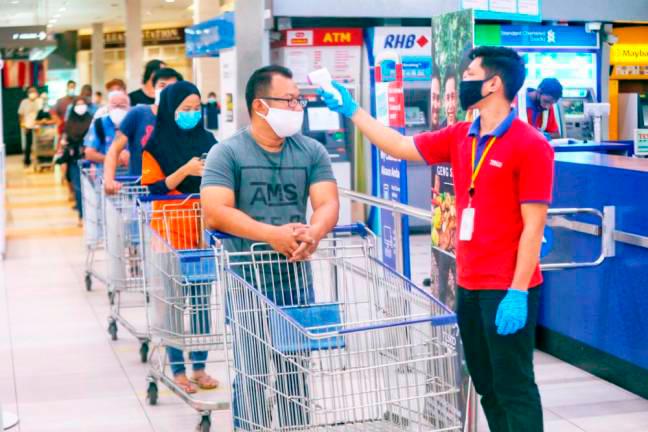PETALING JAYA: The Covid-19 pandemic has changed the world like no health crisis has ever done.
Even if a vaccine is finally made available, lifestyle changes will likely still be a necessity.
According to health experts, practices such as social distancing to curb the spread of infections will likely remain a permanent feature of public life.
Other changes would also be unavoidable. Workplaces may have to be redesigned to meet new requirements. Travel, especially for leisure, will likely be limited.
Latest estimates indicate that a vaccine is still at least a year away.
Several countries are already in the race to find a vaccine, with China and India among them.
Even if one is available in the market now, it will be some time before it comes to Malaysia, according to Taylor’s University head of the School of Medicine, Prof Dr Rusli Nordin.
Rusli said the measures imposed by the government on social distancing, personal hygiene, regularly washing hands and wearing face masks “are not temporary”.
“It will probably take at least five years after a vaccine is found before we can return to our ‘old world’,” he told theSun.
“To put it simply, this ‘VVIP’ (very, very important) virus is not checking in only for a short period. It could be a ‘permanent resident’, living and hiding among us,” he said.
Rusli echoed Health Director-General Datuk Seri Dr Noor Hisham Abdullah’s take that the only solution is a collective effort by all Malaysians to adhere to the standard operating procedures (SOP).
The changes needed to fight Covid-19 will permeate every aspect of our lives. Already, classroom enrolments have been halved to ensure social distancing.
Similar measures have been taken on production lines in factories. Work-from-home is also becoming a permanent feature for many workers.
Malaysian Employers Federation executive director Datuk Shamsuddin Bardan said with Covid-19 expected to remain a long-term, if not permanent, concern, many companies have had to consider digitising their operations.
He acknowledged that a move in this direction could work out positively for businesses and workers.
“Going digital could help cut costs for both employers and employees.”
On the other hand, he said there will be a lot of expenses in the move to go digital, such as the purchase of new equipment to enable employees to operate remotely.
“The government could help by offering tax incentives to help minimise the cost for businesses.”
Shamsuddin said the government should also consider getting telcos to provide better internet services across the country.
“We need to boost this to raise productivity,” he added.
The Malaysian Trades Union Congress proposed that insurance companies introduce policies to protect companies and workers from any fallout resulting from health pandemics.
Its secretary-general, J. Solomon, said this should be done on a sustained basis and not merely to deal with Covid-19.
“Even if a vaccine is found for Covid-19, we still need permanent health and safety measures to safeguard workers at their workplace or hostels,” he said.
“There must be research undertaken locally and in collaboration with international agencies such as the World Health Organisation to find the best measures.
“For the moment, we agree that the SOP for workplaces and hostel accommodation must continue even if a cure is found for Covid-19 as the world cannot afford a similar economic lockdown ever again,” Solomon added.
“These permanent measures must include social distancing, availability of personal protection equipment, a hygienic environment and periodic health screenings for all.”
Read this story in theSun’s iPaper:














